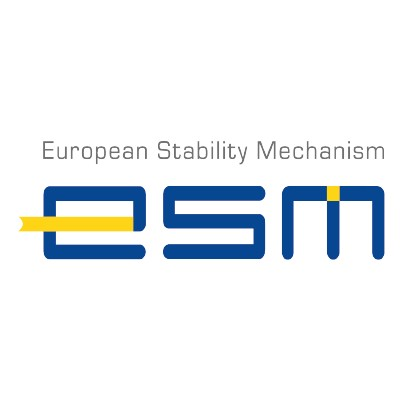EU's Energy Pivot: A New Dawn Amidst Turmoil
February 26, 2025, 3:41 am

Location: United States, District of Columbia, Washington
Employees: 10001+
Founded date: 2000

Location: Belgium, Brussels-Capital, Brussels
Employees: 1001-5000
Founded date: 1958
Total raised: $310.85K
The European Union stands at a crossroads. The war in Ukraine has forced a seismic shift in energy policy. No longer can Europe rely on Russian gas. The stakes are high, and the clock is ticking. By 2027, the EU aims to sever ties with Russian fossil fuels. This is not just a political maneuver; it’s a necessity for survival.
The EU's energy commissioner has laid out a bold vision. The plan is twofold: increase imports of liquefied natural gas (LNG) from the U.S. and accelerate the transition to renewable energy. It’s a race against time. As Russian gas supplies dwindle, Europe must find alternatives. The U.S. is poised to fill the gap, but the path is fraught with challenges.
Gas prices in Europe have soared to two-year highs. This volatility is a double-edged sword. On one side, it reflects the urgency of the situation. On the other, it threatens economic stability. The EU is preparing to implement stricter market controls. The goal is to prevent speculative trading from driving prices even higher. This is a delicate balancing act.
The EU's strategy includes long-term contracts with LNG suppliers. Stability is the name of the game. The European Commission is exploring investments in LNG export infrastructure. This is a proactive approach to secure reliable energy sources. However, the EU does not directly purchase gas. Instead, it will engage with suppliers to negotiate favorable terms.
Renewable energy is the cornerstone of the EU's future. The bloc is committed to accelerating the development of green technologies. This shift is not just about energy independence; it’s about climate responsibility. The EU aims for net-zero emissions by 2050. To achieve this, it must reduce its reliance on fossil fuels. The urgency is palpable.
In the meantime, gas will remain a necessary evil. Industries and households still depend on it for heating and power. The EU is exploring alternative sources to meet this demand. The focus is on finding cheap, non-Russian gas. This is a critical component of the strategy.
The geopolitical landscape is shifting. The U.S. has emerged as a key player in Europe’s energy future. President Trump’s administration has pushed for increased exports of American gas. This has created a new dynamic in transatlantic relations. However, the EU must tread carefully. It cannot become overly dependent on any single supplier.
The energy crisis has also sparked discussions about market reforms. The EU's electricity market rules currently tie retail power prices to gas prices. This is a flawed system that needs an overhaul. The Commission is expected to propose financial instruments to decouple these prices. This could provide much-needed relief to consumers.
As the EU navigates this complex landscape, it faces external pressures as well. The United Nations has become a battleground for competing narratives about the war in Ukraine. The U.S. has proposed a resolution urging an end to the conflict, but it fails to acknowledge Russian aggression. This has sparked tensions within the international community.
The EU's stance is clear. It supports Ukraine's sovereignty and territorial integrity. The bloc has condemned Russia's invasion and called for an immediate withdrawal of troops. The General Assembly has passed multiple resolutions reflecting this commitment. However, the U.S. resolution, which glosses over Russia's role, complicates matters.
The transatlantic alliance is under strain. European leaders are wary of the U.S. administration's approach to negotiations with Russia. The sudden shift in U.S. policy has left many feeling sidelined. Ukraine's President has accused Trump of spreading disinformation. This rhetoric only adds fuel to the fire.
The world is watching closely. The votes on the rival resolutions in the U.N. will serve as a barometer of global opinion. The EU's commitment to Ukraine remains steadfast, but the dynamics are shifting. The U.S. must navigate these waters carefully to maintain its influence.
In conclusion, the EU's energy pivot is a response to a rapidly changing world. The need for energy independence has never been more urgent. The transition to renewables is essential, but gas will remain part of the equation for now. The geopolitical landscape is complex, and the stakes are high. The EU must act decisively to secure its energy future while standing firm in support of Ukraine. The road ahead is fraught with challenges, but the potential for a brighter, more sustainable future is within reach.
The EU's energy commissioner has laid out a bold vision. The plan is twofold: increase imports of liquefied natural gas (LNG) from the U.S. and accelerate the transition to renewable energy. It’s a race against time. As Russian gas supplies dwindle, Europe must find alternatives. The U.S. is poised to fill the gap, but the path is fraught with challenges.
Gas prices in Europe have soared to two-year highs. This volatility is a double-edged sword. On one side, it reflects the urgency of the situation. On the other, it threatens economic stability. The EU is preparing to implement stricter market controls. The goal is to prevent speculative trading from driving prices even higher. This is a delicate balancing act.
The EU's strategy includes long-term contracts with LNG suppliers. Stability is the name of the game. The European Commission is exploring investments in LNG export infrastructure. This is a proactive approach to secure reliable energy sources. However, the EU does not directly purchase gas. Instead, it will engage with suppliers to negotiate favorable terms.
Renewable energy is the cornerstone of the EU's future. The bloc is committed to accelerating the development of green technologies. This shift is not just about energy independence; it’s about climate responsibility. The EU aims for net-zero emissions by 2050. To achieve this, it must reduce its reliance on fossil fuels. The urgency is palpable.
In the meantime, gas will remain a necessary evil. Industries and households still depend on it for heating and power. The EU is exploring alternative sources to meet this demand. The focus is on finding cheap, non-Russian gas. This is a critical component of the strategy.
The geopolitical landscape is shifting. The U.S. has emerged as a key player in Europe’s energy future. President Trump’s administration has pushed for increased exports of American gas. This has created a new dynamic in transatlantic relations. However, the EU must tread carefully. It cannot become overly dependent on any single supplier.
The energy crisis has also sparked discussions about market reforms. The EU's electricity market rules currently tie retail power prices to gas prices. This is a flawed system that needs an overhaul. The Commission is expected to propose financial instruments to decouple these prices. This could provide much-needed relief to consumers.
As the EU navigates this complex landscape, it faces external pressures as well. The United Nations has become a battleground for competing narratives about the war in Ukraine. The U.S. has proposed a resolution urging an end to the conflict, but it fails to acknowledge Russian aggression. This has sparked tensions within the international community.
The EU's stance is clear. It supports Ukraine's sovereignty and territorial integrity. The bloc has condemned Russia's invasion and called for an immediate withdrawal of troops. The General Assembly has passed multiple resolutions reflecting this commitment. However, the U.S. resolution, which glosses over Russia's role, complicates matters.
The transatlantic alliance is under strain. European leaders are wary of the U.S. administration's approach to negotiations with Russia. The sudden shift in U.S. policy has left many feeling sidelined. Ukraine's President has accused Trump of spreading disinformation. This rhetoric only adds fuel to the fire.
The world is watching closely. The votes on the rival resolutions in the U.N. will serve as a barometer of global opinion. The EU's commitment to Ukraine remains steadfast, but the dynamics are shifting. The U.S. must navigate these waters carefully to maintain its influence.
In conclusion, the EU's energy pivot is a response to a rapidly changing world. The need for energy independence has never been more urgent. The transition to renewables is essential, but gas will remain part of the equation for now. The geopolitical landscape is complex, and the stakes are high. The EU must act decisively to secure its energy future while standing firm in support of Ukraine. The road ahead is fraught with challenges, but the potential for a brighter, more sustainable future is within reach.